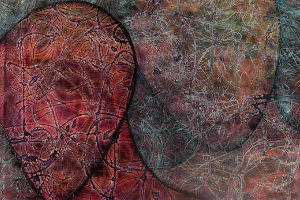 There is a lot of confusion these days regarding the meaning of the word empathy and how empathy can be demonstrated in a relationship. Oftentimes we hear of a comparison between empathy and sympathy, which regards the latter as a less heartfelt response to a situation or to a partner’s feelings.
There is a lot of confusion these days regarding the meaning of the word empathy and how empathy can be demonstrated in a relationship. Oftentimes we hear of a comparison between empathy and sympathy, which regards the latter as a less heartfelt response to a situation or to a partner’s feelings.
I am not quite sure if comparing those two words is of much use considering the context of this article. There are times where one or the other is a more appropriate response to any specific situation. However, in a loving partnership, where effective communication, safety, and validation of feelings are some of the cornerstones of a healthy relationship, empathic responses, rather than responses of sympathy, are decidedly more valuable.
So what is empathy? Many sources define empathy as a person’s ability to step into their partner’s shoes and experience their partner’s experience as their own, therefore coming away with a better understanding of their feelings. What is often left out of this definition, however, is that one must do a bit more than step into their partner’s shoes and experience their experience—this implies that whatever event that causes the feeling the partner is feeling will cause the same feeling in the partner who wishes to empathize. Often it does not. The key here is not to step into your partner’s shoes simply to see how you would feel if you experienced the same thing he or she is experiencing, but rather to focus on what the partner is actually feeling. Here, we can indeed rely on our own lived experience of that feeling to be empahtic. Feelings are universal—every healthy person has them—and therefore they are more accessible to understanding and empathy.
This distinction may seem rather subtle, but is really quite important. It is the feeling that must be understood and given attention. If the event does not generate the same feeling in the partner wishing to empathize that should have no consequence on their focus on their partner’s feelings. For example, if your partner loses their favorite pet, one that they have loved for years, you should be empathizing with their deep feelings of grief and despair, even if you absolutely hated their beloved pet! If you simply stepped into their shoes in order for you to experience the loss of an animal that you despised, you would probably feel relief rather than sorrow. You certainly would not be able to empathize with your partner’s grief.
This is a rather obvious example. Most people could still empathize with a partner’s loss of a pet the partner loved that they hated because somewhere in their experience there possibly was a loss of a pet that they had loved. So they could then have a better understanding of the cause of their partner’s pain. However, if this is how they are coming to an empathic response, they are not really empathizing, as empathy follows the feelings regardless of why a person is feeling the way they are feeling.
Most relationships do not have difficulties regarding a lack of empathy from a partner surrounding larger life events—unless of course one of the partners in a relationship is actually psychopathic, and I am assuming that is the not case for any of you reading this article! The problems are actually generated from a lack of empathy in smaller issues, and as we all know, small issues add up and become bigger issues over time.
Say your partner loves to garden, and you see absolutely no appeal to gardening. None. And lets say that the weather is exceptionally bad for a month or so where you live and your partner has not been able to get out into the garden and do the thing he or she loves so dearly. As a result he or she gets a bit depressed, sad, and moody. What do you do? Can you empathize with his or her feelings? Obviously you can see no reason on earth why he or she could be so sad or depressed—after all, who gets depressed if they can’t do gardening!? If you ignore your partner’s feelings, or worse yet, get annoyed with their sadness, then you are not being very empathic. You say you have put yourself in their shoes, and you feel nothing for not being able to garden (if anything you might even feel joy!). You can’t understand why your partner feels so badly—why can’t they read a book (which you love to do!) or play with the dog, or enjoy the rain (which you also love to do!)? You just can’t see why he or she has to be so depressed over something that just doesn’t matter.
THAT is NOT empathy.
Ever find yourself doing something like this? If so, take some steps to correct it. Your partner is a unique human being, and although you share a lot of wonderful interests, share values, and experience joy in certain mutual activities, there are bound to be many things that you simply do not understand why they would mean so much to him or her when they mean little or nothing to you. Tune yourself into this and understand that reactions, good or bad, to various things that surround these differences may come up.
Focus on your partner’s feelings rather than on the things, events, or activities that create those feelings.
Do not pass judgment on those feelings based on how you would react to the stimulus your partner is reacting to. That is not what it is about.

Showing an empathic awareness to good feelings as well as the bad ones is also quite important in a healthy relationship. If your partner finds joy, fulfillment, meaning, and purpose in things that you cannot resonate with in the same way as he or she does, make it a point to focus again on your partner’s feelings surrounding these things. See if you can feel joy when your partner feels joy over something you typically don’t find joyous yourself. Or, if you cannot actually feel it, at least bring it into your awareness and understand—empathize—with the good feeling you see your partner experiencing—regardless of what is provoking the feeling! This is one way you can expand your own experience. Maybe you will discover things that your partner loves that you had not even given a thought to before your partner brought you their joy over this thing. Even if you never do develop your own likes and interests around your partner’s likes and interests, at least try to empathize with their feelings over these things. You will end up enjoying your life with your partner much more as a result, and you will also help to establish a safe, rewarding, and joyful environment with your partner that you both can enjoy. Of course it is assumed that your partner is empathizing with your feelings as well!
As a result empathically attuned couples ebb and flow with their partner’s feelings stimulated by their specific interests and values. They can become joyous, for instance, when their partner is joyous simply because their partner is joyous—not because of what their partner is joyous about. And vice versa of course. Needless to say it is not advantageous to become depressed or sad when your partner is feeling these feelings, but empathizing with them certainly will help make a safe and comfortable environment for your partner, and for you too when it comes time for your partner to show empathy toward you.
*****
Todd Hayen is a psychotherapist practicing in Aurora and Richmond Hill Ontario. Please leave comments by clicking the comments link below this post. I welcome any thoughts you may have.







If you’ve ever had the experience of easily feeling other people’s emotional states, and are able to feel subtle spiritual or emotional energy, then the chances are that you are an Empath, or Highly Sensitive Person. In 3 eBooks and 8 hours of audio instruction, you will explore techniques and methods based on over 15 years of serious study in energy psychology, natural healing, shamanism, and metaphysics. http://bit.ly/1CZsfic
This is very true! Will consider this moving forward 🙂